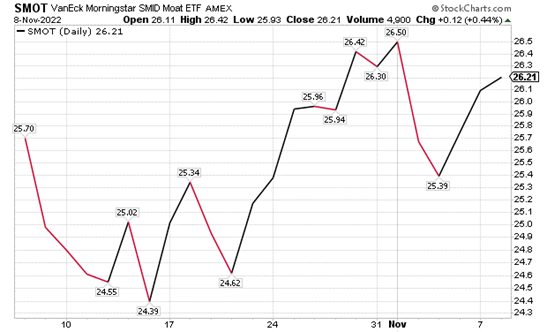A key to success is to fortify one’s business from economic assault the way a feudal lord defends his castle from rival attacks, states Jim Woods of The Deep Woods.
That is, not only do you need to produce something that fulfills a need in the market to be successful, but you also ideally should try to build a “moat” around your product to defend it from enemies. Now, the moats in question are not those that you see around castles in Europe and elsewhere.
Rather, I am talking about what Warren Buffet calls “an economic moat,” which he defines as unique advantages, such as network effects, switching costs, intangible assets, and so on, that a business can use to remain competitive in an ever-changing marketplace. The presence of one or more moats allows a company to defend its market shares and profits from rival companies.
On the other hand, companies that lack such advantages often end up either acquired by a leaner, meaner enemy or quickly disappear from the economic stage.
One way to generate profits from “moats” is through an exchange-traded fund (ETF), such as VanEck Morningstar SMID Moat ETF (SMOT).
As its name suggests, SMOT tracks an index of small- and mid-cap companies with sustainable competitive advantages. These companies are identified through the use of qualitative and quantitative factors and are divided into narrow moat companies (who are projected to have a competitive advantage for at least ten years) and wide moat companies (who are believed to have an advantage for 20 years).
After the bottom 3% based on float market capitalization are excluded, the stocks are then sorted by momentum so that only the top 80% remain. From there, the fund’s managers only select stocks with the lowest current market price and fair value ratio for inclusion in the portfolio. While the index is equally weighted, it is also divided into two sub-portfolios that target 75 companies each.
This ETF’s top holdings include Ameriprise Financial, Inc. (AMP), Rockwell Automation, Inc. (ROK), Verisign, Inc. (VRSN), Paccar, Inc. (PCAR), Graco, Inc. (GGG), Wesco International, Inc. (WCC), Ingersoll Rand, Inc. (IR) and State Street Corp. (STT).
As of Nov eighth, SMOT had risen 0.44% for the past day but slid 1.09% for the last week. The ETF currently is up 4.93% for the past month. Due to the ETF’s recent launch, performance data stretching over a longer time period is not available.

Chart courtesy of stockcharts.com
The fund has amassed $12.25 million in assets under management and has an expense ratio of 0.49%.
In short, while SMOT does provide an investor with access to economic moats, this kind of ETF may not be appropriate for all portfolios. Thus, interested investors always should conduct their due diligence and decide whether the fund is suitable for their investing goals.











